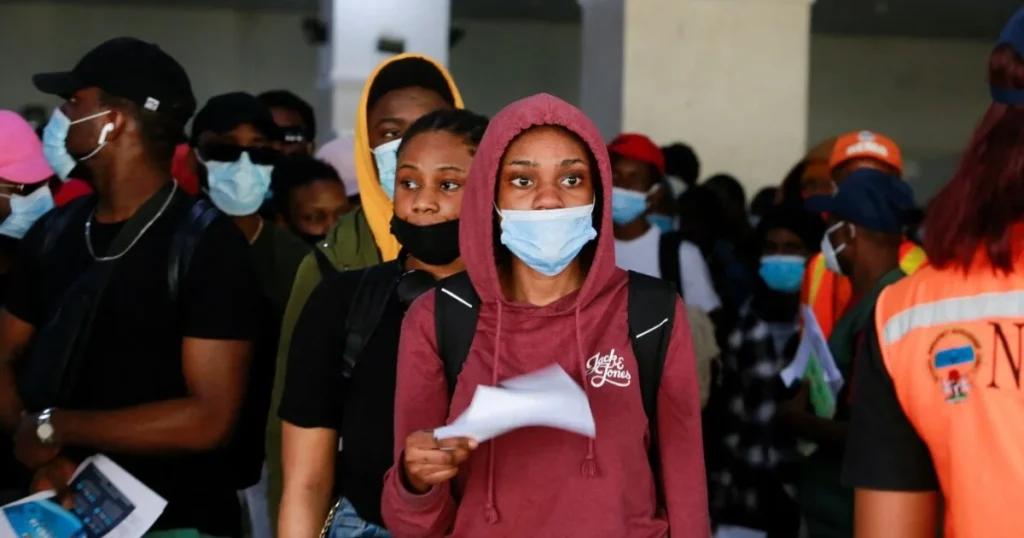In the northern province of Cabo Delgado, Mozambique, the scars of a brutal insurgency continue to haunt survivors like Zara Alifa Assumane. The horrors inflicted by the militant group known locally as al-Shabab—distinct from the Somali group of the same name—have displaced hundreds of thousands and left communities struggling to rebuild. Despite a decline in attacks, the trauma and devastation linger, casting a shadow over a region rich in natural resources yet plagued by poverty and violence.
A Brutal Legacy of Violence
Zara Alifa Assumane, a 62-year-old resident of Montepuez, cannot erase the memory of her sister-in-law’s gruesome death two years ago in Mocimboa da Praia. “They placed her severed head in front of our house door and then cut off her hands and placed them on her body,” Assumane recounted, her voice heavy with grief. The killing, a punishment for her sister-in-law’s defiance, was witnessed by her son, who was subsequently abducted by the insurgents. Fleeing 150 kilometers to safety, Assumane now lives in a displacement camp, where the echoes of that day still torment her: “I’m still terrified, I can’t stop thinking about it.”
The insurgency, which began in 2017, has claimed over 3,700 lives, including 1,600 civilians, and displaced approximately 800,000 people. The group’s raids on towns and villages have left a trail of destruction, with stories of beheadings, abductions, and mass shootings haunting survivors. Cornielo Manuel, a 31-year-old former fisherman, bears physical and emotional scars from an attack. “Blood was flowing like a river. I counted about 50 men killed that day,” he said, revealing bullet wounds on his shoulder from an assault where insurgents, shouting “God is great,” gunned down his community.
A Fragile Respite
Recent interventions have brought some relief to Cabo Delgado. Since July, thousands of troops from Rwanda and the Southern African Development Community (SADC) have bolstered Mozambican forces, reducing the frequency of attacks. A military camp near Pemba’s airport, housing planes from Lesotho and Botswana, serves as a hub for these operations. Yet, the region remains on edge, with the insurgency’s roots tied to deeper grievances.
Cabo Delgado, home to Mozambique’s Muslim majority, is rich in natural gas and rubies, attracting massive investments like TotalEnergies’ $20-billion project and operations by companies such as Britain’s Gemfields. However, these ventures have failed to improve living standards in one of the world’s poorest regions, fueling resentment that insurgents exploit. “The real aims of al-Shabab are unclear,” Manuel noted, reflecting the confusion over whether the group seeks to establish a caliphate or simply capitalize on local discontent.
Life in Displacement Camps
In Montepuez, displacement camps have become makeshift communities for thousands. Aid agencies provide essentials like food, water, and sanitation, while a local economy is emerging. Barbers and tailors accept mobile payments, children sell eggs, and entertainment—like a “Barcelonas vs Napoles” football match advertised on a shack with a satellite dish—offers moments of normalcy. Solar-powered speakers blast Mozambican rap, and roosters crow, signaling resilience amid hardship.
Killen Otieno, chief operating officer of the South African charity Joint Aid Management, described the situation as “total devastation.” Having worked in conflict zones like Somalia and South Sudan, he remarked, “In my 30 years of experience, I’ve never seen anything like what I’ve seen here in Cabo Delgado.” The scale of suffering underscores the urgent need for sustained humanitarian support.
A Region at a Crossroads
Cabo Delgado’s azure seas and white sand beaches belie the region’s turmoil. The insurgency, born from decades of neglect by the central government, has historical echoes in the civil war fought by communist rebels during the Cold War era. Today, the promise of resource wealth contrasts starkly with the poverty and violence that define daily life.
As foreign troops and aid organizations work to stabilize the region, the path forward remains uncertain. The insurgency’s decline offers hope, but addressing the root causes—poverty, marginalization, and inequitable resource distribution—is critical to lasting peace. For survivors like Assumane and Manuel, the memories of loss and violence persist, a reminder of the long road to recovery for Mozambique’s northern province.






